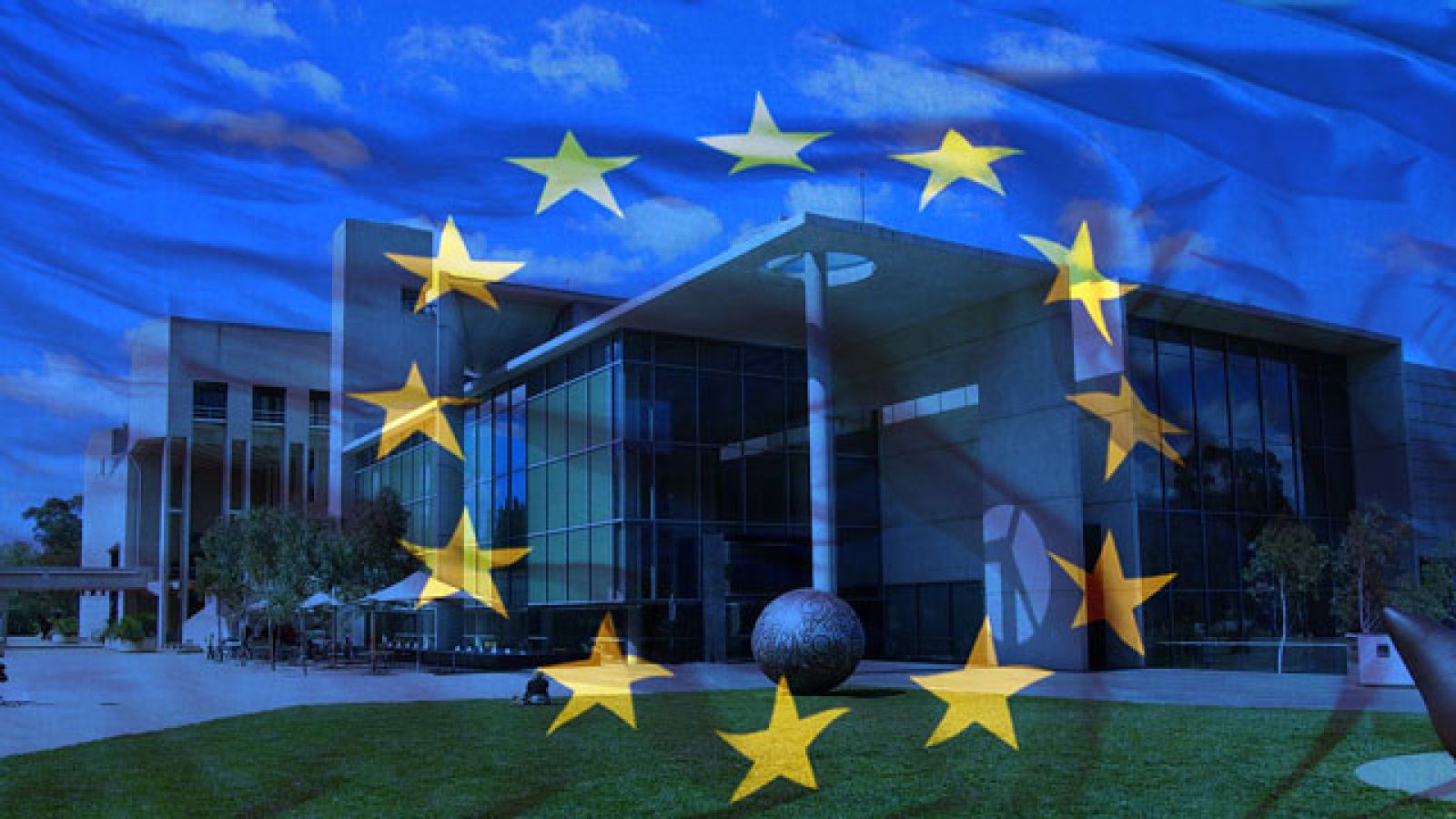ANU helping conceptualise Europe’s Australian ties through art

National Gallery of Australia meets the European Union, via the ANU Centre for European Studies. EU flag photo by Hakan Dahlstrom/Flickr
The ANU Centre for European Studies and the National Gallery of Australia have begun a three-year partnership which aims to provide new audiences to both parties.
It follows another three-year agreement, between the centre and ABC Radio National’s Big Ideas program that seeks to explain major political, social and cultural topics from contemporary Europe.
Both initiatives are part of the Centre’s work program under its new funding grant from the European Union.
Among the goals of the Art and Europe speaking series are to increase awareness about Europe’s contributions to Australia’s cultural and social life through the continent’s connections in the gallery’s collection and touring exhibitions.
“It’s a wonderful opportunity for a closer collaboration with one of our leading institutions,” says Centre deputy director, Anne McNaughton.
“There’s a cross-fertilisation at play where we see a combination of what’s happening in the academic world and the way in which that scholarship has a broader reach with the general public.
“This major cooperation with one of Australia’s elite cultural institutions shows the esteem in which the Centre is held.
“The talks will broaden the Centre’s audience and raise the profile of a wide variety of European interests in areas where perhaps people didn’t register were significant.”
The inaugural Art and Europe talk last month was by Jane Milosch from the Washington DC-based Smithsonian Institution’s Provenance Research Initiative.
National Gallery of Australia Assistant Director, Simon Elliott, says provenance research of objects in museums has become a major topic across the world.
“The National Gallery of Australia was delighted to welcome Jane Milosch to discuss the work American museums have undertaken on World War II provenance research over recent decades.
“The Gallery also had the opportunity to engage Jane with similar work being undertaken in Australia with a view of sharing expertise, resources and understanding across the Pacific.”
Anne McNaughton asked Jane about opportunities and ways of encouraging university students and graduates in this area.
“She said it was so important for students to have a language, to study a foreign language related to the particular area where the research provenance was located,” Anne recalls.
“This sort of work is a lot like being a detective, in that you’ve got to read primary sources, for example in catalogues of Chinese work held by German auction houses.”
The ANU Centre for European Studies is an initiative involving five ANU Colleges (Arts and Social Sciences, Law, Business and Economics, Asia and the Pacific and Medicine, Biology and Environment). It is co-funded by the ANU and the European Union.